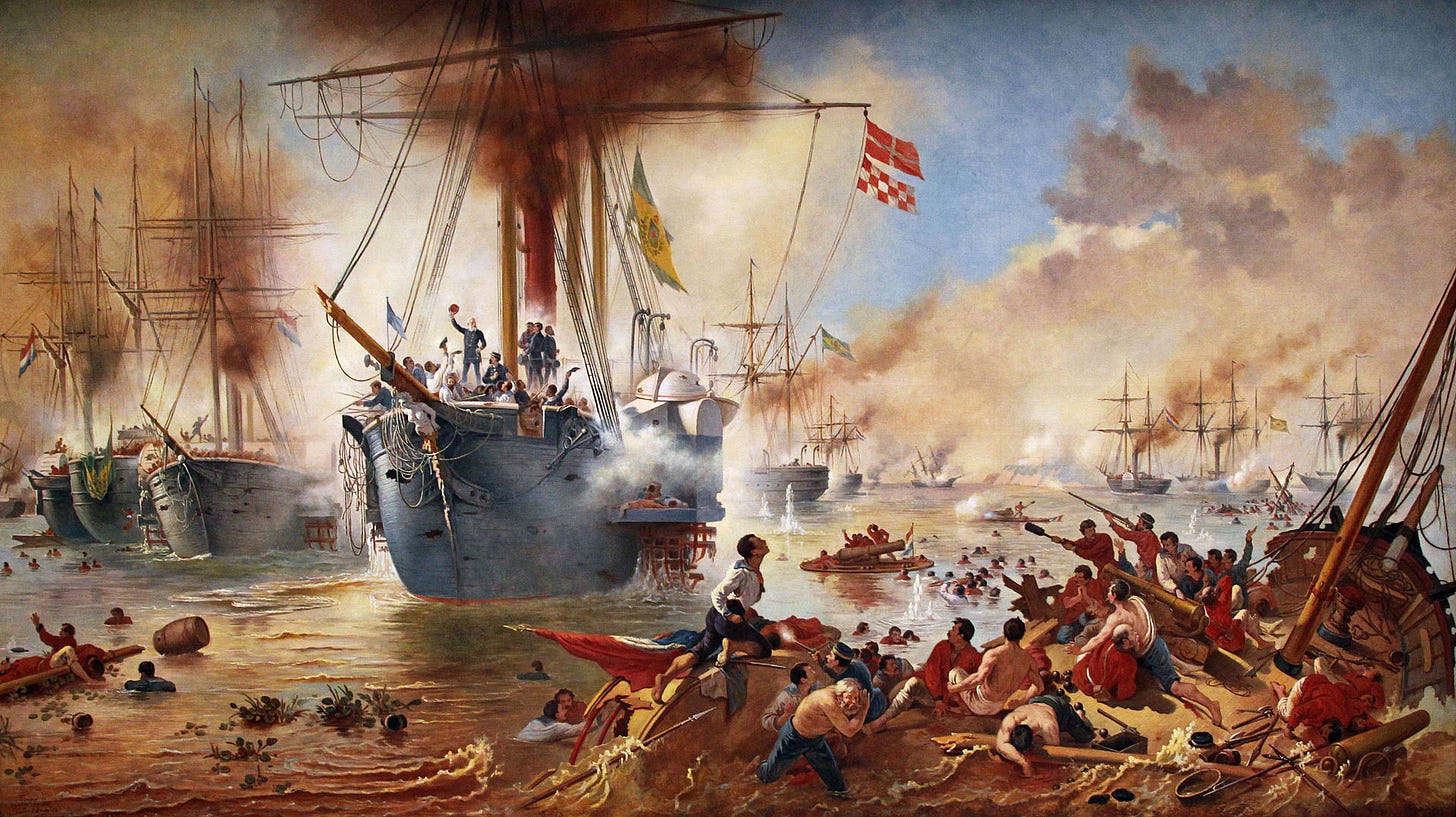TODAY IN HISTORY
June 11, 786: The Battle of Fakhkh, near Mecca, results in the decisive defeat of a small early Shiʿa uprising. What makes this battle notable is that one of the rebel leaders, Idris b. Abdullah, survived and fled to northwestern Africa, where he established the Idrisid dynasty and is credited with founding the nation of Morocco.
June 11, 1865: A Brazilian naval squadron virtually annihilates the Paraguayan navy in the Battle of Riachuelo, fought on the Paraná River and named for a stream that flowed into that waterway near the site of the engagement. The Brazilian fleet outclassed the Paraguayans, so the Paraguayans initially planned a surprise attack to seize the Brazilian vessels. Paraguayan commander Ignacio Meza abruptly decided to change plans and opened fire on the Brazilians, and after an initially chaotic response Brazilian commander Francisco Barroso used his flagship, the Amazonas, to ram a Paraguayan vessel and turn the tide of the battle. The Paraguayan navy was broken, and this battle is considered a turning point in the 1864-1870 War of the Triple Alliance in that after some initial success Paraguay now found itself on the defensive.

INTERNATIONAL
Humanity experienced 61 conflicts in 36 countries in 2024, according to a new report from the Peace Research Institute of Oslo. That’s a new record, surpassing the old record of 59 conflicts in 34 countries set all the way back in 2023. One year at such a frenzied level of violence could be an anomaly, but two in a row unfortunately seems like the beginning of a trend and possibly a new normal. Last year’s conflicts killed an estimated 129,000 people, about the same as in 2023 and the fourth-highest figure recorded in this study since the end of the Cold War.
A recently published study in Nature finds that the global increase in the frequency and severity of droughts is not only due to changes in precipitation patterns but is also the result of a drying atmosphere. Researchers found that an increase in “atmospheric evaporative demand,” basically how much water the atmosphere draws out of the Earth, accounted for around 40 percent of the intensification of droughts around the world from 1981 to 2022. This means that even in places where precipitation patterns haven’t changed much there is still a rising risk of drought.
MIDDLE EAST
TURKEY
Foreign Policy’s Gönül Tol is not optimistic about the chances for a real peace deal between the Turkish government and the Kurdistan Workers’ Party:
After decades of repression, many of Turkey’s Kurds are hopeful that their long struggle for basic rights may finally be nearing a breakthrough. That hope is fueled by newly launched talks between Turkish President Recep Tayyip Erdogan’s nationalist coalition and the imprisoned leader of the Kurdish Workers Party (PKK), Abdullah Ocalan. The talks have already produced the historic declaration by the PKK to disband and renounce armed struggle. Pro-Kurdish politicians have praised Erdogan’s efforts to pursue a peaceful solution.
But both precedents in other countries and Erdogan’s own record suggest a different outcome. We know from case after case that autocrats—whether they are actual dictators or strongmen at the head of flawed democracies—rarely resolve ethnic conflicts. They often freeze or suppress them, sidestep root causes, and instrumentalize the unresolved conflict as an excuse to tighten their grip on power. The result is rarely peace—just postponed instability.


